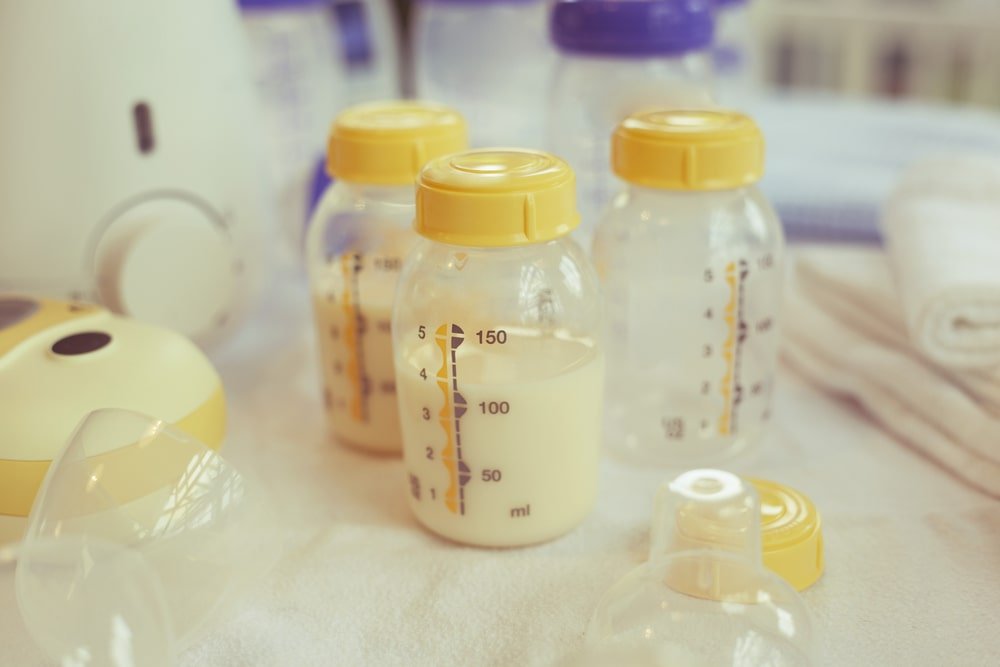When your baby’s spit-up changes from the normal white to a disturbing yellow color, it can instantly cause concern. As parents, we pay attention to changes in our babies.
This helps us watch for signs of illness, and it can help us make sure that our little one is okay.
View in gallery
- If the baby spit-up is yellow, it could be mucous, bile, or simple colostrum spit-up.
- If you notice your baby spitting up yellow, it’s always a good idea to check for other symptoms that could be concerning or contact your pediatrician.
In this article
What Is The Difference Between Spit Up And Vomit
Spit up is common in infants, and is usually not a concern. Complications only happen in under 1% of infants. Vomiting is more concerning, so it’s important to know the difference.
Vomiting Is Projectile
If you notice that your baby is lurching forward, that’s a sure-fire sign. Vomiting tends to be a bit more forceful than a regular spit up.
Spit up tends to come out a little slower, and is accompanied by a burp. It doesn’t make the stomach contract quite the same as vomit does.
There Is Less Spit Up
When your little one pukes, there’s going to be a lot more than when they spit-up. Vomit might look like your little one just threw up their entire bottle.
Spit up can be so little that it can be mistaken for drool. This is rarely the case when it comes to vomit.
Babies Are More Likely To Be Sick With Vomit, But Not Spit Up
If your baby is vomiting, there’s a good chance that they are sick. Common illnesses, such as the flu, can easily result in a lot of baby puke.
If your little one is showing other signs of being sick, it’s more than likely vomit. Take their temperature. Pay attention to other signs of discomfort.
Irritability, such as being fussy, is a common sign that your baby is sick. If you’re not sure whether they’re ill, contact your pediatrician.
Baby Spitting Up Yellow Mucous
If your little one is sick, expect them to spit up yellow. When babies lay down, mucous can drain down their throat and into their stomach.
This can then either stay in their stomach or upset their stomach which will make them throw it up. Either way, you can expect to see your little one spitting up a tiny bit of yellow if they have yellow mucous.
If the yellow spit up appears to have the same texture of mucous or you notice that your baby has a significant amount of yellow mucous, contact your pediatrician. This can be a sign of an infection, like a sinus infection.
Colostrum Spit Up Might Be Yellow
View in gallery
Before your breast milk comes in, you’ll be feeding your baby colostrum. Colostrum is packed with important vitamins and nutrients to give your little one the jump start that they need in life.
Most moms notice that their colostrum is white or yellow. Sometimes it’s also clear. If yours is yellow, it makes sense that your baby might spit up yellow.
Not Burping Can Make Your Baby Spit Up Yellow
If a child doesn’t burp and has yet to poop, the milk that they drink can sit in their stomach. Then, it tends to ferment. The end result is a baby spitting up yellow milk with a spoiled milk scent.
If your little one isn’t burping, this can make the situation worse. Make sure that your burp your baby every time that they hit.
You might have to pat them more firmly on the back than you’re used to before they will burp, but it’s fine. Patting them firmly on their back can help them burp.
Bright Yellow Spit Up Is Bile
Your little one has bile in their stomach just like the rest of us. If they’re throwing up bright yellow vomit or their yellow spit up is bright yellow, this could be a sign of something more serious.
A bright yellow color means that you should call the pediatrician for advice. Spitting up bright yellow bile can indicate that there is nothing else in their stomach. It can quickly lead to dehydration if vomiting continues.
This could be due to something perfectly normal, like a virus. However, it could also be due to bowel obstruction or serious illness. Give your doctor a call to make sure that it’s nothing serious.
In the meantime, if your little one keeps throwing up, watch for signs of dehydration. These include:
- Fewer than six wet diapers a day
- Crying without tears
- Sunken in eyes
- Dry mouth
- Cracked lips
If you notice these signs, take your baby to the local emergency room. They can provide fluids via an IV to help get your baby re-hydrated.
Acid Reflux
While there are serious conditions that can make your little one spit up bright yellow bile, like a bowel obstruction, there are also some not-as-serious conditions that can, like acid reflux.
Acid reflux is common among children that are under one year old. This condition will make a baby through up a majority of the contents of their stomach, including the acid/bile at the bottom of it.
If your little one has acid reflux and is spitting up yellow bile, it’s more than likely normal. Give your pediatrician a call to make sure, though.
Give The Doctor A Call Anytime You’re Concerned
Knowing when to call the doctor is important. You should call the doctor any time that you’re concerned.
View in gallery
If you notice symptoms of other conditions that your little one has yet to be diagnosed with, it’s also important to call your doctor to get a diagnosis. Pediatricians can also provide useful advice to help you make your little one more comfortable.
In Conclusion
Sometimes, yellow spit can be perfectly normal. If your baby is breastfeeding, not burping, or still drinking colostrum, there’s probably nothing to worry about.
If your little one is vomiting, it can be a problem. In this case, call your pediatrician. Remember, if you’re ever concerned about your baby, it can’t hurt to call their pediatrician to make sure they are okay.






